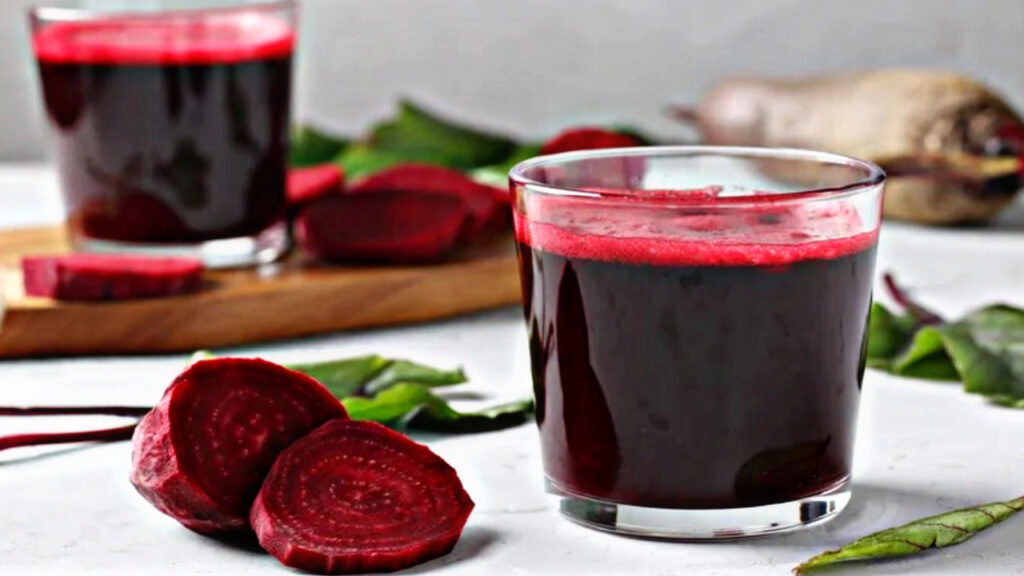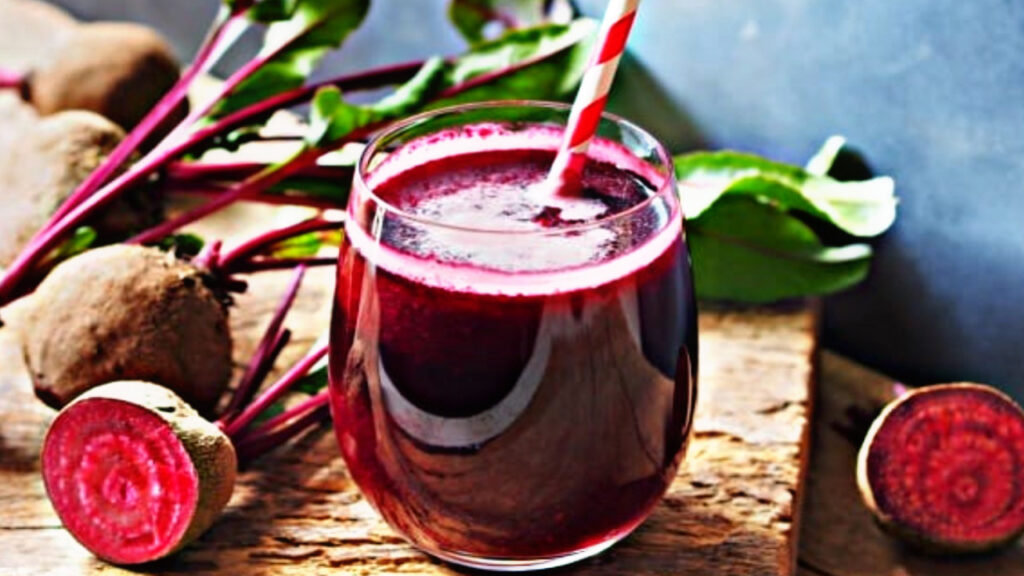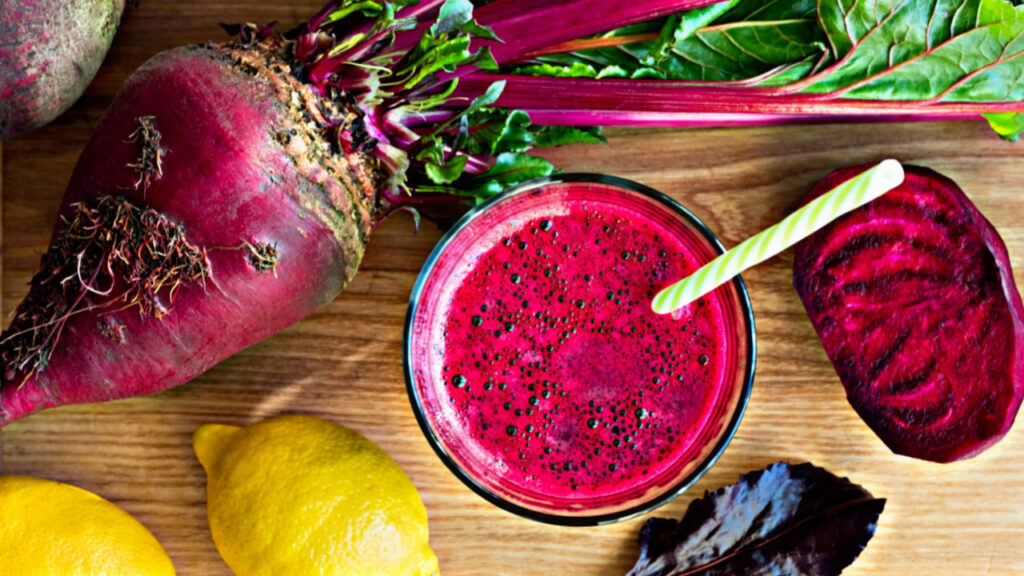Beetroot Juice
High blood pressure, or hypertension, is one of the most common health conditions affecting millions of people worldwide. Often termed the “silent killer,” high BP typically shows no symptoms but can lead to serious health issues like heart disease, stroke, and kidney failure if left untreated. While medications can help manage hypertension, many people are turning to natural remedies to supplement their treatment. Among the most promising options is beetroot juice, a nutritious beverage that has gained attention for its potential to help control high blood pressure.

How Beetroot Juice Works for High Blood Pressure
Beetroot juice is rich in nitrates, which the body converts into nitric oxide. Nitric oxide plays a key role in relaxing and widening blood vessels, which in turn helps improve blood flow and lower blood pressure. This vasodilation effect makes beetroot juice particularly beneficial for individuals with hypertension.
A number of studies have shown that drinking beetroot juice can have an immediate and significant impact on lowering blood pressure. The effects are thought to be linked to the high concentration of dietary nitrates in the beetroot. When consumed, these nitrates stimulate the endothelial cells in blood vessels, promoting the production of nitric oxide, leading to the dilation of blood vessels and improved circulation. This process helps reduce the overall pressure exerted on the arterial walls, which can help stabilize blood pressure levels.
Scientific Evidence Supporting Beetroot Juice
Several clinical studies have demonstrated the blood pressure-lowering effects of beetroot juice. A notable study published in the journal Hypertension found that drinking just 250 ml (about 1 cup) of beetroot juice resulted in a significant reduction in blood pressure within a few hours. The study concluded that the high nitrate content in beetroot juice contributed to the decrease in systolic blood pressure (the top number in a blood pressure reading).
Another study published in The American Journal of Clinical Nutrition revealed that regular consumption of beetroot juice could lead to long-term reductions in blood pressure. Participants who drank beetroot juice daily for several weeks experienced improved vascular health, with sustained reductions in both systolic and diastolic blood pressure readings.
Other Health Benefits of Beetroot Juice

Beyond its potential to control blood pressure, beetroot juice offers a host of other health benefits:
- Rich in Nutrients: Beetroot juice is packed with essential nutrients like vitamin C, folate, potassium, and iron. These nutrients help support overall health and wellness.
- Boosts Stamina: Due to its nitrate content, beetroot juice has been shown to improve athletic performance by increasing stamina and endurance. This makes it a popular drink among athletes and fitness enthusiasts.
- Detoxifies the Body: Beetroot is known for its detoxifying properties. It helps cleanse the liver and promotes the elimination of toxins from the body, which can contribute to overall health.
- Improves Digestion: The fiber content in beetroot juice aids digestion and helps prevent constipation. It also supports gut health by promoting the growth of beneficial bacteria.
How to Incorporate Beetroot Juice into Your Diet
Incorporating beetroot juice into your diet is easy. You can either purchase pre-made beetroot juice or juice fresh beets at home. For a more flavorful drink, consider mixing beetroot juice with other juices like apple, carrot, or ginger. Drinking one small glass (about 250 ml) per day is usually sufficient to experience its benefits. However, it is important to consult with a healthcare provider, especially if you are on medication for high blood pressure, as beetroot juice may interact with certain medications.
Beetroot juice is a promising natural remedy for managing high blood pressure. With its high nitrate content and proven ability to improve blood vessel function, it offers a simple and accessible way to support heart health. While it may not replace traditional treatments, it can be a valuable addition to a healthy lifestyle. As with any natural remedy, it is important to use it alongside other healthy practices, such as a balanced diet, regular exercise, and stress management, to achieve optimal results in managing hypertension.





